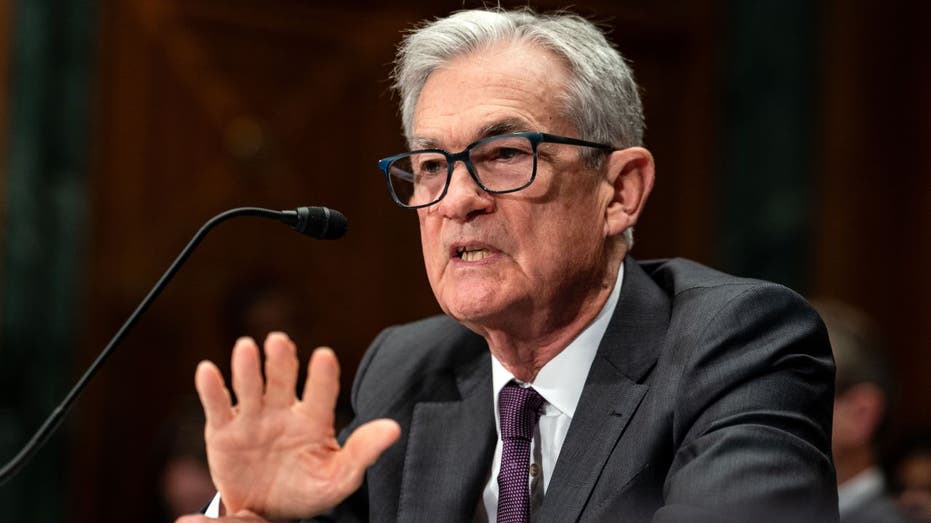The Labor Department will release its latest monthly inflation report on Tuesday at a critical time for the economy, as the Federal Reserve will take stock of the impact of tariffs on consumer prices ahead of its interest rate decision next month.
The Bureau of Labor Statistics (BLS) will release the consumer price index (CPI) for July on Tuesday morning, which is expected to show inflation ticking higher from the previous month and moving further away from the Federal Reserve’s 2% longer-run target.
Goldman Sachs economists led by Jan Hatzius projected that headline CPI inflation will rise to 2.8% on an annual basis, in line with the consensus and up from the 2.7% reported last month. Core inflation, which excludes volatile costs such as those for food and energy, is projected to rise to 3.08%, up from 2.9% reported last month.
The Goldman forecast also projected that several tariff-affected product categories will contribute to the rise in inflation, contributing about 0.12% to the projected monthly CPI rise. The categories with tariff-related price boosts in July include furniture, auto parts, apparel, recreation, personal care, communication and education.
FED OFFICIAL CALLS JULY JOBS REPORT ‘CONCERNING’ AS ECONOMY HITS POTENTIAL TURNING POINT
Going forward, the Goldman Sachs economists wrote that they “expect tariffs to continue to boost monthly inflation and forecast monthly core CPI inflation between 0.3-0.4%.”
At the end of 2025, they expect year-over-year core CPI inflation to rise to 3.3% in December – which the economists noted would be 2.5% when excluding the effects of tariffs – while headline CPI inflation will rise to 2.9% annually by year’s end in their forecast.
J.P. Morgan economic analysts projected that CPI would rise 0.3% on a monthly basis in July, pushing the headline CPI inflation figure to an annual rate of 2.8%, also in line with consensus. They also estimated that core CPI inflation will rise 0.34% for the month of July and to 3.1% compared with a year ago, slightly higher than consensus estimates. They wrote in an investor note that core CPI could come in hotter if the “hitherto gradual process of pass-through to consumers starts to accelerate.”
“Tariffs and trade announcements last month may have led some firms to reassess the likelihood that tariff rates would come back down, thereby leading them to consider passing on more of the increase in costs,” the J.P. Morgan economists wrote.
MARKETS NOW BETTING FED WILL CUT RATES IN SEPTEMBER AFTER DISAPPOINTING JOBS REPORT
Gregory Daco, chief economist at EY-Parthenon, said in a recent newsletter that businesses’ higher costs from tariffs are starting to impact inflation this summer, writing that firms’ “logistics maneuvers and proactive pricing strategies may have bought us time, but that cushion is eroding.”
“While inflation impacts from the duties are still emerging, they’re increasingly visible. In June, tariffs accounted for roughly a quarter to a third of the Consumer Price Index (CPI) increase,” Daco wrote.
“Since import prices are not materially declining, this suggests foreign exporters are passing costs through rather than absorbing them,” Daco added. “U.S. businesses, meanwhile, are reporting severe impacts on their earnings, reduced investment plans and slower hiring.”

LEADING ECONOMIST ISSUES STARK WARNING FOR STRUGGLING US ECONOMY
If the July CPI inflation data shows consumer prices are continuing to trend higher as more tariffs take effect, it could complicate the Fed’s outlook for cutting interest rates when the central bank’s monetary policy committee meets next in mid-September.
Fed Chair Jerome Powell has said the central bank is well-positioned to respond to signs of deteriorating economic conditions, though he and a majority of policymakers have opted to hold rates steady so far this year as they wait to see if tariffs lead to one-time price hikes or more persistent inflationary pressures.

Two Fed governors – Michelle Bowman and Christopher Waller – dissented from the most recent decision to hold rates steady, arguing that tariffs’ impact on inflation is likely to be short-lived, and the labor market is showing signs of slowing, so they both favored 25-basis-point cuts. It was the first dissent by two Fed governors in support of rate cuts since 1993.
Members of the Federal Open Market Committee (FOMC), which makes the Federal Reserve’s monetary policy decisions, will get multiple looks at inflation data ahead of their next meeting on September 16-17.
Aside from Tuesday’s release of the CPI report for July, the CPI data for August will be published a week ahead of the next FOMC meeting.
Additionally, the Fed’s preferred inflation gauge, the personal consumption expenditures index, will be released by the Commerce Department with July’s data at the end of this month.
Read the full article here







Leave a Reply